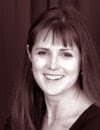Originally posted at LiveJournal May. 2nd, 2009 at 5:42 PM
I’ve been playing with Anagram generators online recently. They’re all over the internet: all you have to do is type “anagram finder” into the search engine of your choice (but I like http://www.wordsmith.org/anagram/ for lots of choice and custome options, or http://www.anagramgenius.com/server.html for a quick blurb) and voila! you can rearrange the letters of anything you want into cool little sayings.
There are lots of famous examples of amazingly coincidental anagrams, like “Dormitory”, which can be rearranged into “Dirty room” or “George Bush”, which anagrams to “He bugs Gore,” but sometimes, it’s more fun to research things that are personal to you, and to your life.
For example:
My name, Kimberly Peters, can be anagrammed to: “Berserk, yet limp” – and some days, when I’m so overwhelmed with things I have to do that I’m paralyzed into inaction, that’s a pretty good description!
And my second book, “Posing as Ashley”, anagrams to: “A sylph agonises”, which, if you’ve read it, is also kind of fitting.But it never would have occurred to me that "Principle Gibson" would have all the same letters as "So brain clipping".
Try it, then send me your results!
Working on My Zuchinni Body
-
So, a few weeks ago I posted a recipe for fresh pasta and I'm sure you have
practising every weekend. Right? Well, I have. So today I made a stuffed
pasta....
10 years ago
